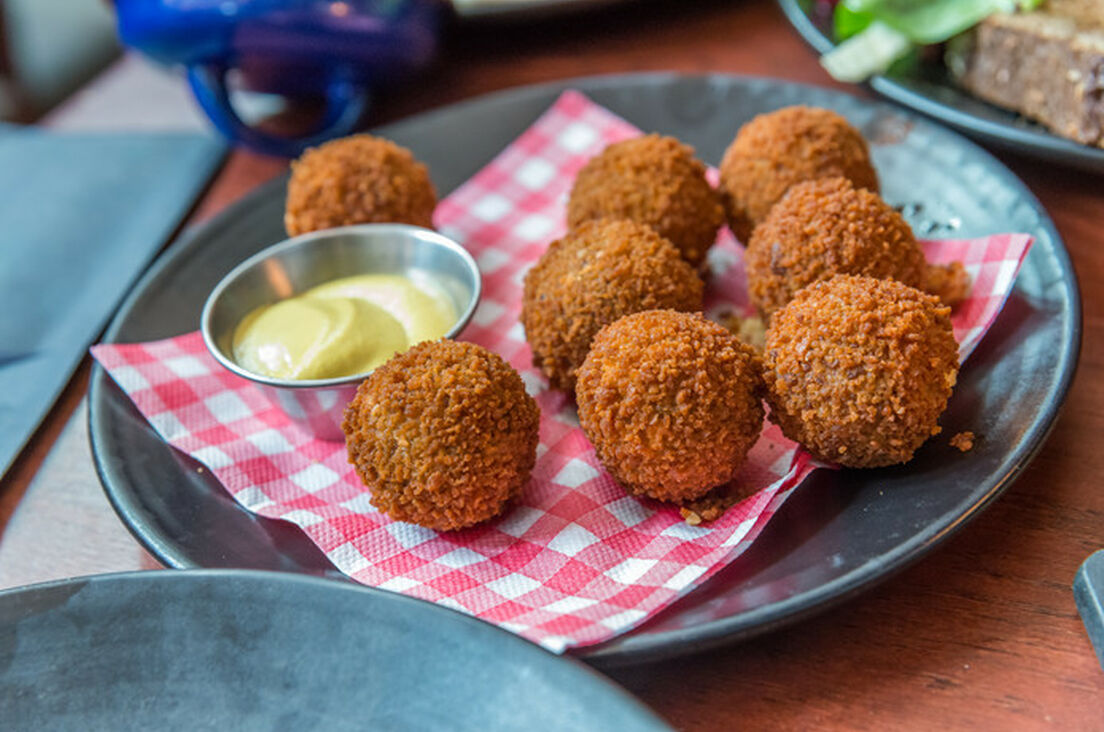Plantaardig pionieren
Het verhaal van twee boeren met een missie: het realiseren van de eerste plantaardige cappuccino op basis van soja van Nederlandse bodem.


I’ve always loved food, my first memories of food and the enjoyment related to it go back to my childhood. When we arrived home from school with my sister, our nanny would prepare us the best after-school snacks: generous sandwiches with fresh lettuce, tomatoes, ham and cheese, creamy “crème caramel” or, my favorite, her mythical Breton far*... Who would have thought that a French girl, enjoying the good things in life, adjusted to eating prime rib on summer Sundays would become vegetarian, almost vegan?
It’s after relocating to the Netherlands, after cutting the umbilical cord with my native France, that I started to change my diet. Now, after 4 years in Amsterdam, I wonder if my diet (99% plant-based) would be the same if I would have stayed in Paris... Did a different culture help me to transform my lifestyle? In the series of articles that will follow, I will try to answer those questions from my own experience, testimonials and just a little common sense.
As soon as I arrived in the Netherlands 4 years ago, I decided to quit meat and fish. On the one hand, because I have never really liked it, but also because Amsterdam offers plenty of alternatives in the supermarkets but also in restaurants. So, it isn’t surprising that one of the most successful Dutch companies at the moment, The Vegetarian Butcher offers, as its name suggests, plant-based alternatives to meat. Although the Dutch have culinary specialties including sausages (Rookworst), fried meatballs (Bitterballen) and a lot of cheeses (everybody knows the Gouda) yet all these delicacies exist in plant-based version here. Is it because the Netherlands are gastronomically not “as rich” as France that we do not find as many plant-based alternatives in the Hexagone? Yes, I wrote gastronomically not “as rich” but let’s be honest, the Rookworst or the Bitterballen did not crossed the borders like the Croque-Monsieur, Beef Bourguignon or the timeless “croissant au beurre” did, right?

It’s when I visited Warsaw that I came to the same conclusion, as I have found a multitude of vegan restaurants, looking more delicious than the others. I had the opportunity to taste the most amazing vegan sushis (a whole new level compared to the sad maki cucumber all the restaurants propose as a vegan option). I was absolutely not expecting this from Poland. When I asked one waiter why there are so many vegan restaurants in the city, he answered that people are just curious, they want to discover a new type of food and they are more open-minded about plant-based food. Maybe countries with a strong gastronomic heritage are too arrogant to look at the plant-based alternatives?
Reading the press, you realize very quickly that the USA, the UK, Germany or Ireland are nations where vegan food of all kinds has exploded in the recent years. While on the other hand, countries like France, Italy or Spain are only starting to talk about reducing meat consumption. In France, a group of celebrities started, in 2019, a movement called “Lundi vert” (it is basically meatless Monday), whereas in Germany “Donnerstag ist Veggietag” (Thursday Veggie Day), was launched in 2010…
So I started to wonder if fine cuisine and veganism are compatible? After a year of being almost vegan I really have high hopes… Despite the fact that some countries are very late in the transition to a plant-based lifestyle, I see a lot of potential in the vegan food scene, even in France! That’s what we will talk about in the next article: how can gastronomy and veganism work well together in harmony.